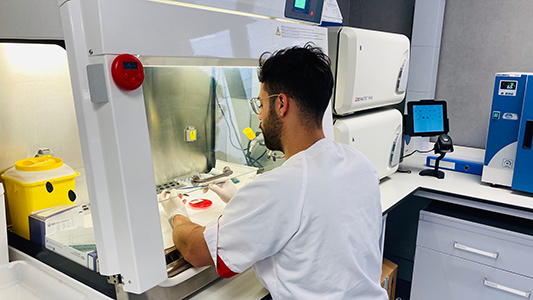
As a result, it is increasingly important to define the content and structure of clinical immunology and to group together the criteria to be used for post-graduate education and the corresponding qualifications.
The World Health Organization (WHO) (I) and the International Union of Immunological Societies (IUIS) (2) published reports in 1972 and 1976 respectively on the content and structure of clinical immunology.
In addition, the IUIS has published a series of reports on key topics in clinical immunology (3-7), and the British Society for Immunology has also published its recommendations about immunology (8-11).
The first contributions of Immunology to medicine stemmed from the discovery that it was possible to induce
immunity to infectious pathogenic agents without the need for the individual to suffer from the disease and all its effects; in other words, the basis of vaccines represents the historical birth of Immunology.
This empirical knowledge was of great use and allowed scientists to study the mechanisms behind this resistance, leading to the discovery of
antibodies.
Up until the 1960s, the main progress in Immunology was made in explaining the nature of antibodies, complements, and the
antigen-antibody reaction. These advances made it possible to perfect
serological diagnosis methods and apply them to other fields with the subsequent emergence of radioimmunoanalysis and enzyme immunoanalysis.
Recently, the number of dieases in which impaired function of the immune system has been found to cause or significantly contribute to the pathological process has increased substantially.
These dieases may be classified into three main groups:
-
Immunodeficiencies
-
Autoimmune diseases
-
Hypersensitivity diseases
Because the
immune system plays a part in the pathogenesis of these diseases, we need to broaden our current understanding of the mechanisms that regulate the immune response. However, even without an in-depth understanding of the mechanisms behind many of these
immunological diseases, today we can use laboratory tests to confirm a clinical diagnosis of them.
Until a few years ago, these tests were based almost exclusively on the determination of
humoral immunity parameters, but nowadays they incorporate cellular and molecular parameters.
The
biochemical and functional characterization of cytokines is opening up an opportunity to assess the state of the immune system and monitor its response to a given pathogenic agent.
Appointments or enquiries
Contact us
We will assist you at any hospital in Spain.